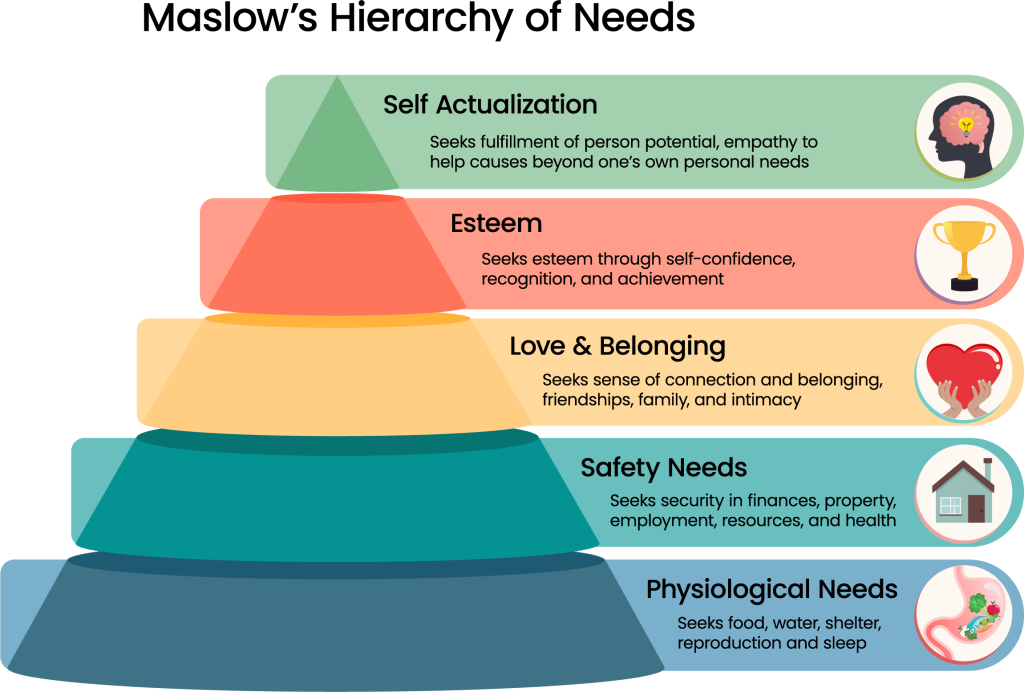The Behavioral Science Behind Patient Experiences
When we talk about providing excellent care, it’s important to understand the deeper layers of what that truly means. Abraham Maslow developed a theory that represents the progression of human needs starting with basic physiological requirements all the way up to self-actualization. Essentially, it’s telling us that before individuals can focus on pursuing personal growth and fulfillment, their fundamental needs must be met.

As a health care provider, whether you are a clinician or in admissions, Maslow’s Hierarchy of Needs plays a large role. How our patients, partners, and stakeholders place value and perceive the delivery of care and experiences they have with us, their doctor, hair stylist, grocery store, etc. You get the picture. The lenses of our world are colored individually and driven by what we need for fulfillment consciously or subconsciously.
Wait…doesn’t the ‘care’ come first?
You’re absolutely right — care should always come first! But let’s face it, “care” can be highly subjective and can mean different things to different people. It’s a bit like love languages. For example, I tell my husband all I need is food, water, and compliments, while he expresses his love through acts of service.
When a new patient is admitted, the first 72 hours are crucial. This is the window in which they form their initial impressions and start to gauge the quality of care they will receive. The timing of their admission might not be ideal (such as 4:40 pm on a Friday), but that’s when they rely on you the most to ensure their transition is smooth and their environment feels safe and welcoming. As they navigate their new environment, they’re not just looking for medical care; they’re also seeking emotional reassurance and a sense of belonging.
They might not fully grasp the intricacies of what it takes to make their care effective, but they know if you are attentive, kind, and hospitable — because then you are checking all of the boxes in their “love, belonging, and esteem category”. Making time to be genuinely welcoming and considerate is not just a courtesy; it’s a fundamental part of providing high-quality care. It’s more about just being “nice”. Making our patients and families feel involved, informed, and goal-oriented is essential to coming full circle in the “CX” or Customer Experience. This ensures that patients feel seen, heard, and valued from the very start of their journey with us.



